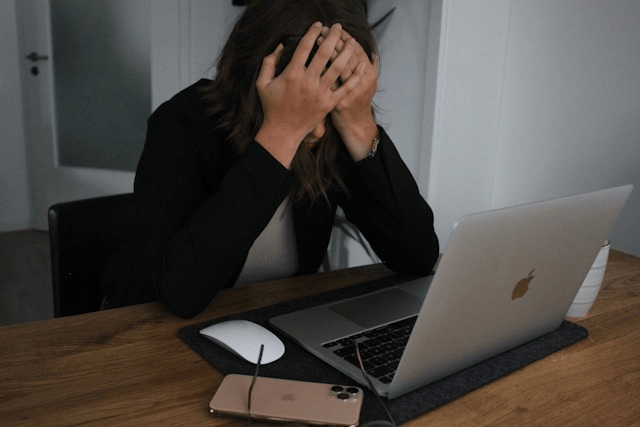The internet has transformed how we connect, learn, and live. With billions of people online daily, it’s become an inseparable part of modern life. While the digital world offers countless benefits, it also brings potential risks, particularly concerning mental well-being. From fostering support communities to triggering anxiety and depression, the internet’s influence on mental health is complex and multifaceted.
In this article, we’ll explore both the positive and negative effects of internet use on mental health, highlight research insights, and share practical tips for maintaining digital wellness.
Positive Effects of Internet Use on Mental Health
Despite widespread concerns, the internet isn’t all bad when it comes to mental health. In fact, when used mindfully, it can serve as a powerful tool for emotional support, learning, and self-care.
1. Access to Mental Health Resources and Online Therapy
One of the most significant advantages of the internet is the accessibility of mental health resources. People can now find online therapy platforms, educational materials, and support services at their fingertips. Whether through licensed online counselors or mental health apps, users can receive professional guidance without geographical limitations.
Platforms like BetterHelp, Talkspace, and Calmerry have made therapy more accessible and affordable. Online therapy benefits those who feel stigmatized by in-person visits or live in remote areas.
2. Digital Support Communities
Online communities offer a sense of belonging to individuals who may feel isolated in their offline lives. Forums, social media groups, and platforms like Reddit or Discord allow people to share their struggles and triumphs in a safe environment.
These peer-support groups can be especially helpful for individuals coping with anxiety, depression, or other mental health conditions. Knowing that others face similar challenges fosters empathy, validation, and motivation to seek help.
3. Mental Health Awareness and Education
The internet has played a crucial role in destigmatizing mental health issues. Websites, influencers, and advocacy organizations use digital platforms to educate people about anxiety, depression, trauma, and more.
Social media campaigns and awareness events (like World Mental Health Day) have amplified global conversations, encouraging individuals to prioritize mental well-being.
4. Wellness Apps and Mindfulness Tools
There are countless apps designed to support emotional health. From guided meditation and breathing exercises to journaling and mood tracking, these tools empower users to take control of their mental state.
Apps like Headspace, Insight Timer, and Moodfit are great examples of how technology can promote relaxation, mindfulness, and self-awareness.
Negative Effects of Internet Use on Mental Health
While the internet offers valuable mental health resources, excessive or unregulated use can negatively impact emotional well-being. The consequences are particularly pronounced among teens and young adults.
1. Excessive Screen Time and Sleep Disruption
Spending too much time online, especially at night, can lead to disrupted sleep patterns. The blue light from screens suppresses melatonin, making it harder to fall asleep. Lack of quality sleep is strongly linked to anxiety, irritability, and depression.
Increased screen time also means less physical activity, reduced face-to-face interaction, and a disconnection from real-world experiences all of which are vital for mental health.
2. Social Media and Self-Esteem
Social media platforms can be breeding grounds for comparison, envy, and insecurity. Curated posts and filtered images create unrealistic standards of beauty, success, and happiness. This comparison culture can severely impact self-esteem, particularly among adolescents.
The fear of missing out (FOMO) and validation-seeking behaviors like obsessively checking likes or comments can trigger anxiety and depressive symptoms.
3. Cyberbullying and Online Harassment
Cyberbullying is a serious and growing concern, especially for younger internet users. Harassment, threats, and public shaming online can cause lasting emotional trauma. Victims often suffer from increased anxiety, low self-worth, and even suicidal ideation.
Online anonymity often emboldens bullies, making digital harassment more prevalent than traditional bullying.
4. Internet Addiction and Mental Health
Internet addiction disorder is a condition characterized by compulsive internet use that interferes with daily life. Individuals may struggle to disconnect, experiencing withdrawal symptoms when offline. This addiction is often associated with depression, loneliness, and anxiety.
Gaming, scrolling, and streaming can become coping mechanisms that mask underlying mental health issues instead of addressing them.
Research and Statistics: Internet’s Impact on Mental Health
Studies have shown a clear connection between internet use and mental health. According to a 2023 Pew Research study:
-
59% of teens feel overwhelmed by the pressure to appear perfect on social media.
-
35% of adults report that excessive screen time negatively affects their mood.
-
Those who spend more than 4 hours daily on social media are more likely to experience symptoms of depression.
Meanwhile, the World Health Organization (WHO) has acknowledged internet-related mental health challenges as a public health concern, especially among young populations.
How to Maintain Digital Well-being
Achieving balance is key. Here are some effective tips to support mental health while still benefiting from the internet:
1. Set Screen Time Limits
Use built-in features on smartphones or third-party apps to monitor and limit screen time. Allocate specific periods during the day to disconnect and engage in offline activities like reading, exercising, or socializing.
2. Curate Your Digital Environment
Unfollow accounts or mute notifications that trigger stress, jealousy, or anxiety. Instead, follow pages and people that inspire positivity and mental health awareness.
3. Practice Mindful Usage
Be conscious of why you’re going online. Are you seeking connection, escaping stress, or just bored? Mindful internet use can prevent overconsumption and promote healthier habits.
4. Take Regular Digital Detoxes
A short break from social media or digital devices can help reset your mind. A weekend detox or a daily one-hour offline routine can improve mood and clarity.
5. Engage in Real-World Activities
Spend more time outdoors, participate in hobbies, or connect with people in person. These experiences offer deeper emotional fulfillment than passive scrolling.
When to Seek Professional Help
If internet usage starts interfering with daily life, relationships, or emotional stability, it may be time to seek help. Warning signs include:
-
Sleep disturbances
-
Persistent low mood or anxiety
-
Withdrawal from offline social interaction
-
Inability to reduce screen time despite negative consequences
Therapists both online and in-person can help individuals develop healthier digital habits and address underlying mental health conditions.
Conclusion
The internet is a double-edged sword when it comes to mental health. While it offers unprecedented access to support, information, and connection, it can also foster anxiety, depression, and disconnection when misused. By being mindful of how we engage with the digital world, setting boundaries, and prioritizing mental well-being, we can enjoy the internet’s benefits while minimizing its drawbacks.









